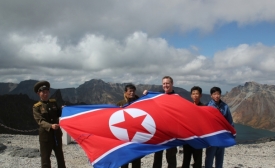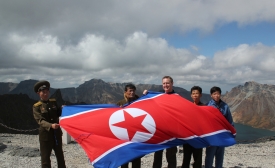north korea
The Japanese government’s failure to provide tuition-wavers for students attending pro-North Korean schools inside Japan “constitutes discrimination,” a UN committee has said in a new report.

Case studies on public diplomacy with adversarial states.

Sherine B. Walton, Editor-in-Chief
Naomi Leight, Managing Editor
Kia Hays, Associate Editor
Harsh international sanctions against Iran are pointless and even counterproductive, members of the Iran Project argued this week in a new report.
A week of critical diplomacy is set to begin in Washington, Beijing and Pyongyang. But the sides are so far apart, at least in public declarations, it is impossible to predict where any diplomatic efforts will lead.
Japan called on China to do more to restrain North Korea and its nuclear program during a visit to Tokyo by U.S. Secretary of State John Kerry on Sunday, a day after the American diplomat and Beijing leaders pledged to work together to restart talks with Pyongyang. Mr. Kerry shuttled between North Asian capitals over the weekend in a bid to avert a broader crisis in the region fueled by Pyongyang's threats to attack U.S. and allied targets in the Pacific.
The United States and Japan opened the door Sunday to new nuclear talks if North Korea lowered tensions and honored past agreements, even as the saber-rattling government rejected South Korea's latest offer of dialogue as a "crafty trick." U.S. Secretary of State John Kerry told reporters in Tokyo that North Korea would find "ready partners" in the United States if it began abandoning its nuclear program.
North Korea is a tiny dictatorship with a bankrupt economy, but its leaders are remarkably adept at manipulating global public opinion. In recent weeks, we have been exposed to yet another brilliant example of their skill.







